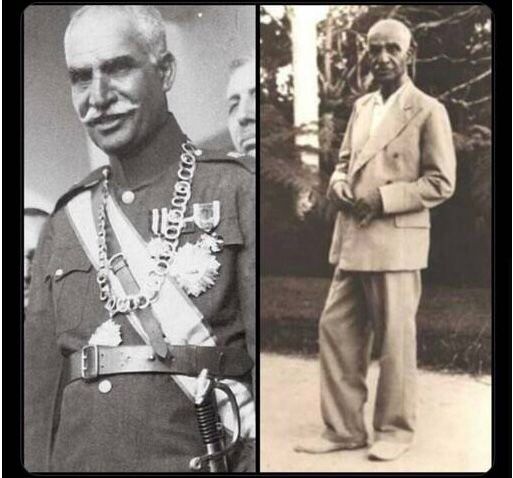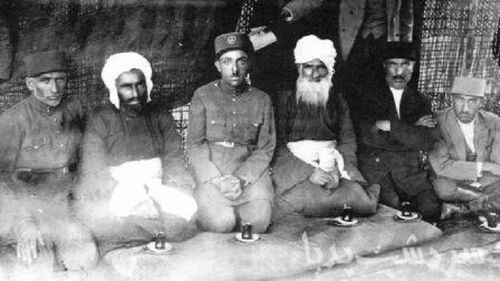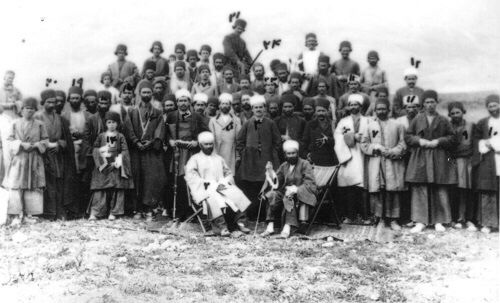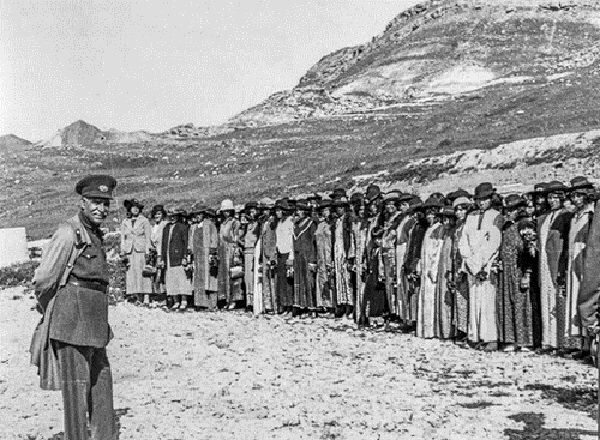After Reza Khan Pahlavi took over Iranian affairs in the early 1300s, he wanted to imitate Mustafa Kemal Pasha, known as Ataturk, in carrying out a project known in history as Reza Khan's reform plans. Reza Khan's reform plans had positive and negative impacts on Iranian society. One of them was a plan to remove all kinds of local, regional, and national clothes from the people of different parts of Iran, remove the headscarves from women throughout Iran, and force all Iranians to wear the same color or similar clothes throughout Iran. Obviously, Reza Shah used this plan for the advancement of the Iranian people and, according to him, to modernize and renew the country in imitation of Ataturk. Another issue that can be mentioned about the Reza Khan state in Iran at that time is Reza Khan wanted the reform program to weaken the clerical system. On the other hand, by expressing the uniformity of people's clothing and removing the hijab, he reduced the influence of the class in the field of belief, which was the scope of work of the mullahs. Thus, in terms of power and spiritual strength, his actions marginalized the mullahs, especially the Shiite mullahs who held power and had many financial and material resources, and this caused a reaction.

Reza Khan - Before and after getting into power
According to the plan, all Iranian men were forced to wear the Shapo or Pahlavi hat, and all people in different parts of Iran, regardless of their cultural and historical differences, had to act, dress, and speak alike. Therefore, Kurdish people had to refrain from wearing Kurdish clothes. Wear suits, remove Kurdish hats, and put on shapo hats. At a time when one of the identity factors of Iran's different ethnic groups was wearing clothes, most of Iran's ethnic groups protested against this decree and constitution. Meanwhile, the forced removal of the hijab by order of Reza Khan has sparked strong reactions from Iran's religious people. Both Shiite and Sunni mullahs revolted against Reza Khan's reforms, which wanted to remove the hijab from women.

But there were other reasons for opposing Reza Khan's reforms in Kurdistan:
First, the Kurdish people had a history of fighting against the armed and military policies of Reza Shah. Reza Shah had actually suppressed the Kurdish revolutions and tried to suppress the revolution of Smail Agha Simko in collaboration with spies like Khalo Qurban. Therefore, the Kurdish people knew Reza Khan's occupation policy. On the other hand, the Kurdish people considered the removal of the hijab from women as an opposition to their religion. Another important point that Kurdish people opposed was the removal of Kurdish clothes as a national insult, so both Kurdish women and men stood up to Reza Khan's order to remove Kurdish clothes. This phenomenon was reflected in the poetry and writings of many Kurdish poets and writers of that time. For example, the great Kurdish poet Mullah Marf Kokayi, although he praised Reza Khan in several poems, in one poem he made fun of the options called Reza Khan's reforms, one of which was to remove national clothes from people in different parts of Iran and Kurdistan.
In his poem Nafsi Hiz, Mullah Marf describes Reza Khan's policies as follows:
I go to the rivers and streets to be comfortable
The police are ready and ask me for a hat
Interestingly, I am “famous” in this city
And then the police ask my name
After the spread of protests against the removal of national dress from Iranian nations and the removal of the Islamic hijab from women, many Shiite clerics protested, but the protests did not go beyond street protests.
However, it started widespread protests in Kurdistan and among most classes of society. Especially in the Mukriyan region and cities such as Mahabad, Bokan, Sardasht, and Shino people stood up against this decree and most of the residents of that area, despite the oppression of Reza Khani's repressive forces, did not obey and refrained from changing clothes and wearing hats. The Kurdish people of Mukriyan, who had a rich cultural history, were not willing to give up easily what had formed part of their identity.

Forced deportation of tribes by the Reza Khan government
As mentioned, the main purpose of Reza Khan's modernization ideas was to give the appearance of modernizing social institutions like the West. To make the appearance of modernism, Reza Khan tried to establish some modern institutions such as universities, the development of railways, roads, and other things that show the appearance of a progressive country in Iran, thus showing the West and the Iranian people that a trend of development started in Iran. However, in addition to this policy of modernization, in the cultural sector, Reza Khan also pursued some cultural policies that were included in his reform program. As the most important of these styles and directions, we can mention the change of clothing and some of the social customs that were common in Iran at that time. In the book "The Governments of the Constitutional Period" by Zargham Brojeni, it is said that; "Reza Khan gave a speech to Iranian merchants: The times demand to give people the same color and unity in their clothes. It also requires that people be the same in thought, belief, and opinion. This kind of harmonization has good consequences for the advancement of our affairs in the monarchy in Iran. That is why I am pleased that the Iranian business delegation has understood that this problem must be resolved. That is, the problem of the diversity of people's clothes must be solved. He also says that there have been differences in language and clothing among the Iranian nation for years and that for people to be united, they must have the same clothes and language to form a nation. Therefore, all Iranians, especially tribes, must wear similar clothes, and this uniformity of clothing increases the spirit of courage and greatness in them.
To be continued ...








